5 Ways You Can Recycle Better in 2023
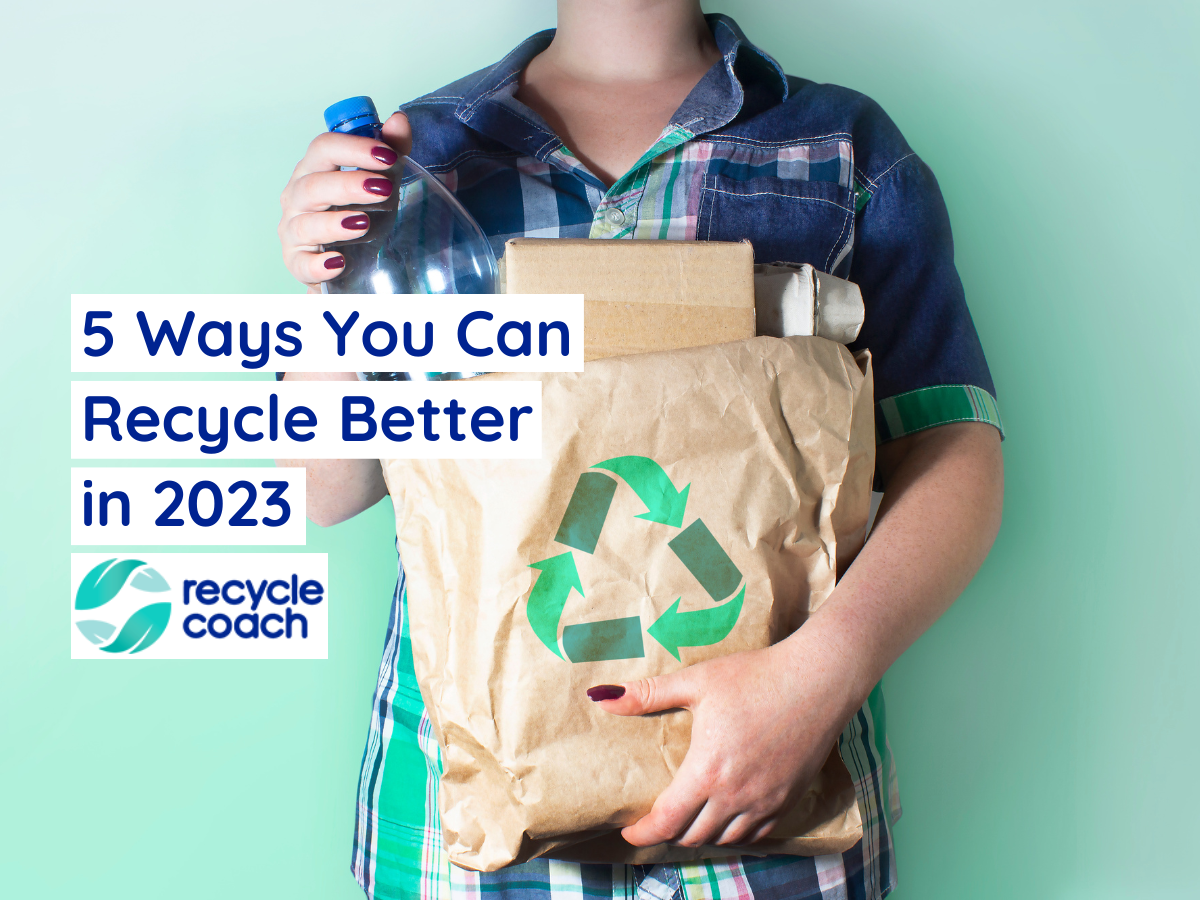
Recycle better this year! Instead of working on specific New Year’s resolutions this year, it’s time to just work on improving ourselves and our environment. Fitness and healthy eating usually top the resolution self-improvement list, but we have way to better yourself this year—Recycle Better!
Recycling can get confusing at times, so just enacting a few tips from us can take the pressure off. Taking steps to recycle better in 2023 can be simple and have a huge impact on your feeling of achievement, well-being, and your positive contribution to the world.
By just improving on this eco-friendly action, that you’re most likely already doing, by learning to do it a little better this year, you can make a huge impact on the health of the planet.
1. Educate Yourself
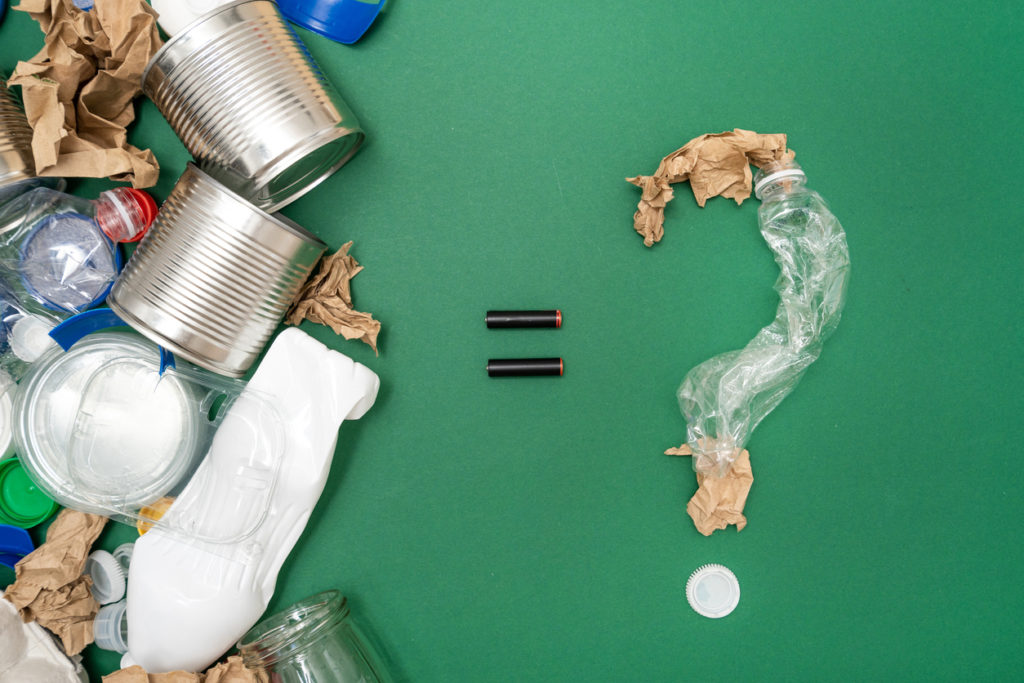
The best way to be sure something is recyclable is to look it up. Each recycling program is slightly different based on what machinery they have and who is buying their recycled waste as feedstock. This means from one town to the next, there may be different items accepted in any given recycling program.
The best way to combat inadvertent contamination of your recycling bin, is to look up what your program allows whenever you come across an item when you’re not sure if it’s accepted or not.
It’s also important to double check the items you think you do know. Occasionally programs change at the beginning of the year due to new laws and regulations, so it’s a good idea to look back to your town’s waste and recycling website to see what they are currently accepting.
Keeping up to date on what your program accepts is one way to ensure you recycle better and do not accidentally add items to your bin that don’t belong.
2. Keep Things Clean
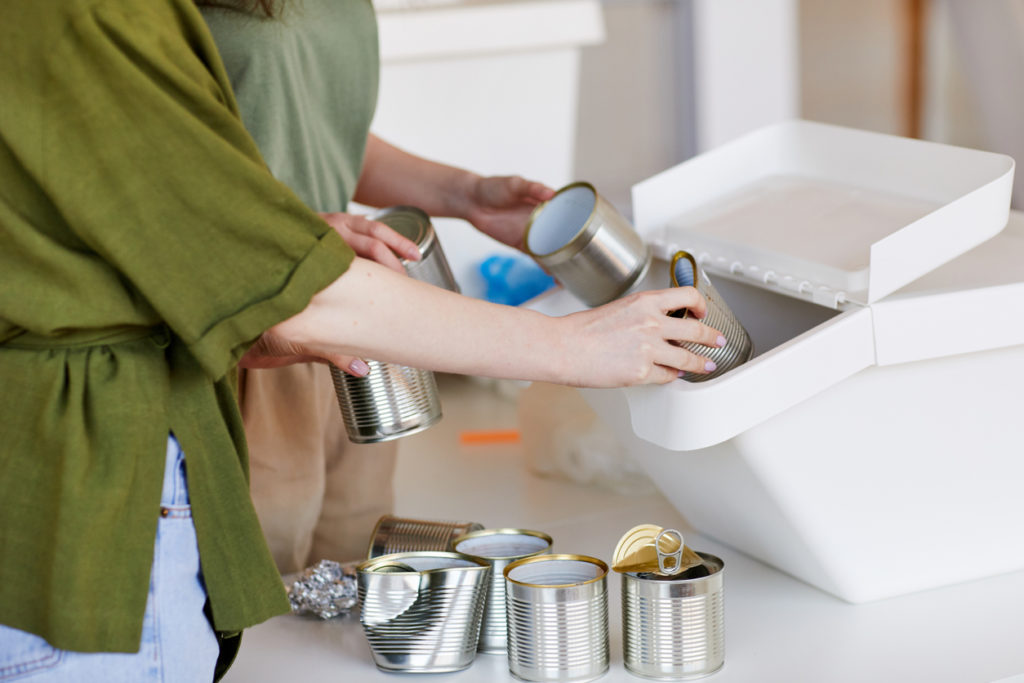
Recycling contamination can also come in the form of dirty containers. Making sure all your plastic, glass, and metal containers are clean is an important step in your home recycling.
You don’t need to run things through a dishwasher or anything like that, but you should make sure to empty out all food, liquid, or products out of containers you plan to recycle. Wiping out goopy materials is also essential.
3. Don’t Bag Your Recyclables
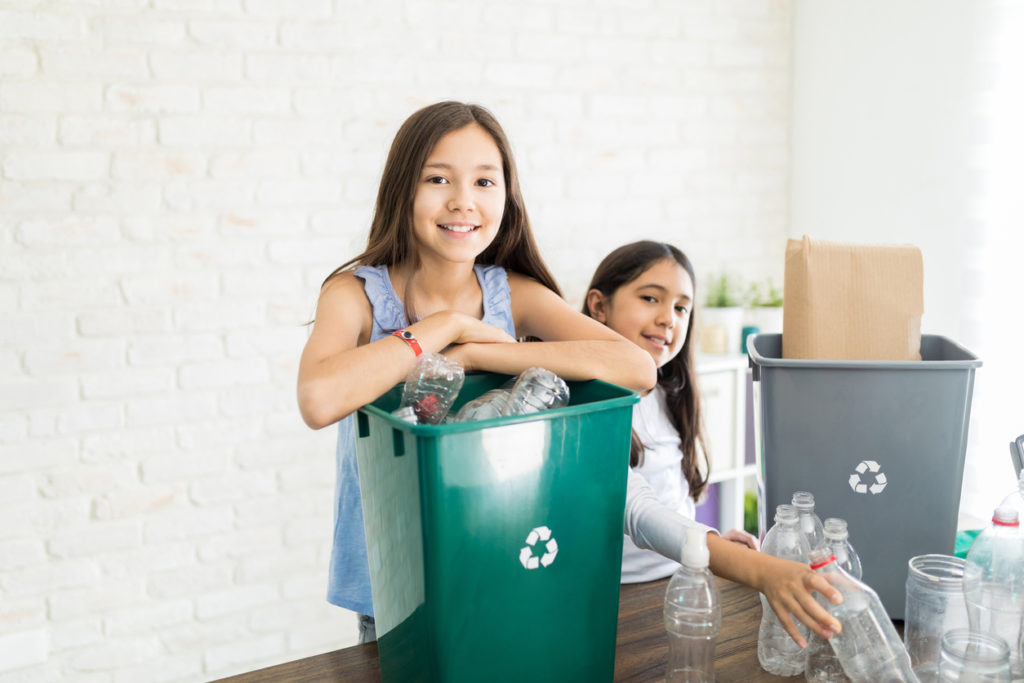
An easy way to recycle better is to never bag or bundle your recyclables. Items need to be left loose in the bin to be correctly sorted at the facility. Since the sorting process is so quick, items left in bags are typically sent to landfill because detectors can’t tell what’s inside.
The exception to this is if your specific town allows you to place additional recycling in a large transparent recycling bag when your bin is full. Please check with your municipality’s policy on these types of curbside recycling bags.
4. Recycle More
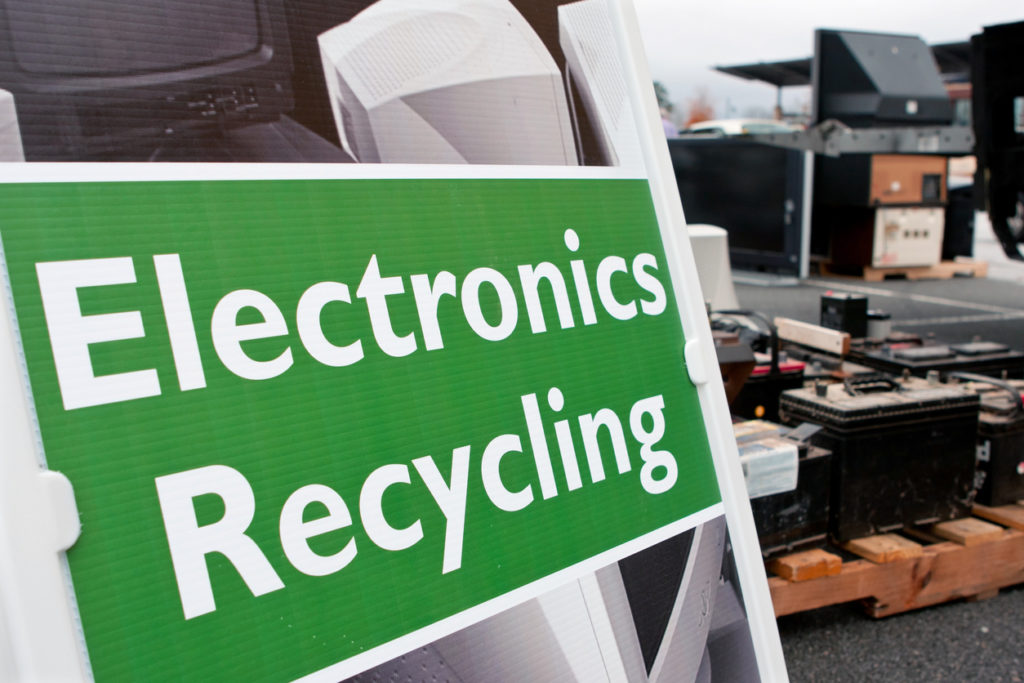
Once you know what your program doesn’t accept, find alternative ways to recycle instead of putting these items in the trash.
For instance, you can typically bring plastic grocery bags back to recycle them at in-store drop-off bins. Corks from wine bottles can be sent back to a company called ReCork to be recycled. Batteries can be brought to most Home Depot or Staples stores for battery recycling.
There are so many difficult to recycle items that have new independent recycling programs popping up for drop-off or send-in recycling. You just need to seek them out.
5. Find Alternatives to Recycling
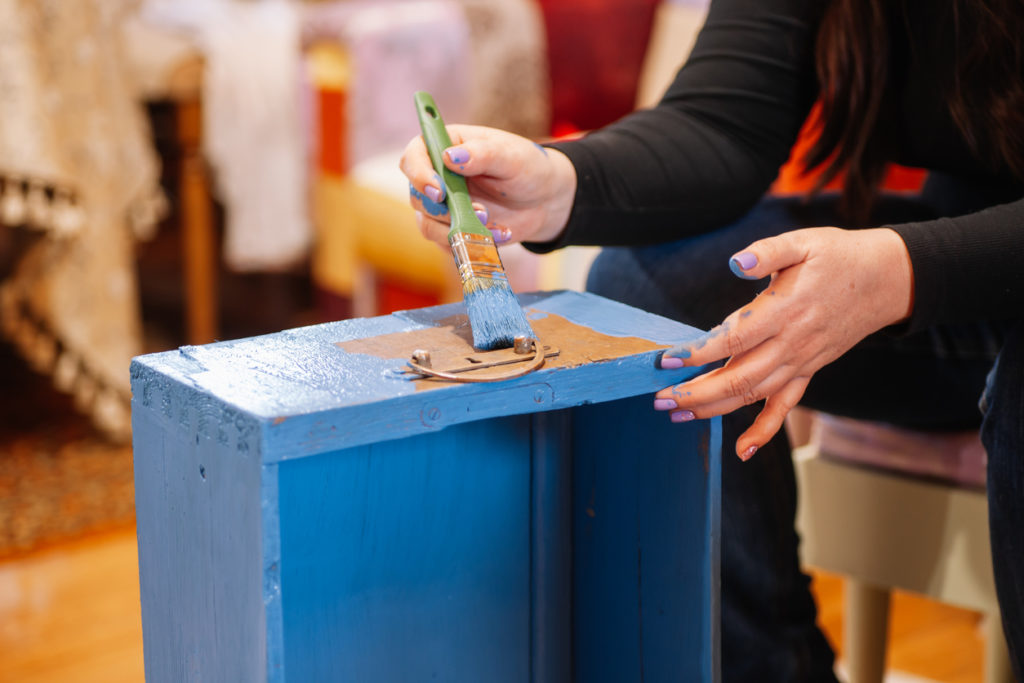
For those items that aren’t accepted in your local program, it’s also worthwhile to see if there are different ways you can keep them out of landfill.
Reusing items or upcycling them are both great options for getting more use out of things. Some examples would be to bend old spoons to be turned into hooks, use old containers as planters in the spring or turning the drawers from a broken dresser into shelves.
Repairing items can help reduce your waste and is a handy form of recycling. There are nearly infinite videos available online to help you repair electronics, furniture, and anything else you might need to fix.
Do What You’re Doing, But Do It Better
So really, you’re already doing good for the environment by recycling, why not make your resolution this year to just improve on the good things you’re already invested in. This boost in your recycling education and practice can have lasting effects on our environment and help ensure that you are not wish-cycling. We’re sure the sense of accomplishment once you feel more confident in your recycling skills will help with your overall self-improvement journey.